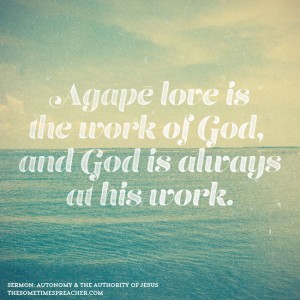Naming a church is an odd process. It’s both extremely important and not important at all at the same time. Does it really matter what the church is called? Yes, it does. But, seriously, does it? Well, no.
When I planted Ember Church, I had the name picked out years before we actually even started taking the planting process seriously. The name was tied to the idea, even defining it. I could not have planted a church by any other name. But Ember’s time has passed, and now God has a new church for me to have a hand in leading. And that church has a name, too.
Hope Church.*
Christianity speaks to each of the core longings of human beings: the need to be known, the need to be loved, the need to belong, the need to be forgiven, and the need to have a hope that transcends death. The hope we have as Christians is unique in this world because it is not of this world, though it is for this world. Our hope is rooted in the resurrection of Jesus Christ, and that hope not only rescues us from the fear of death, but gives us confidence to live each day with faith and love.

